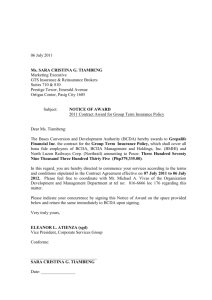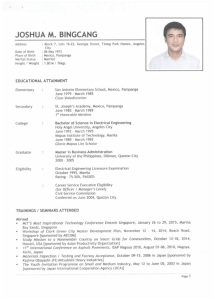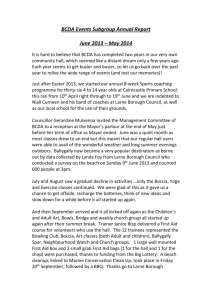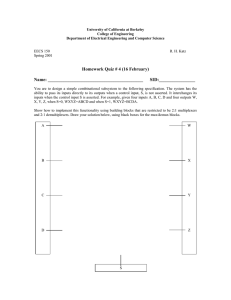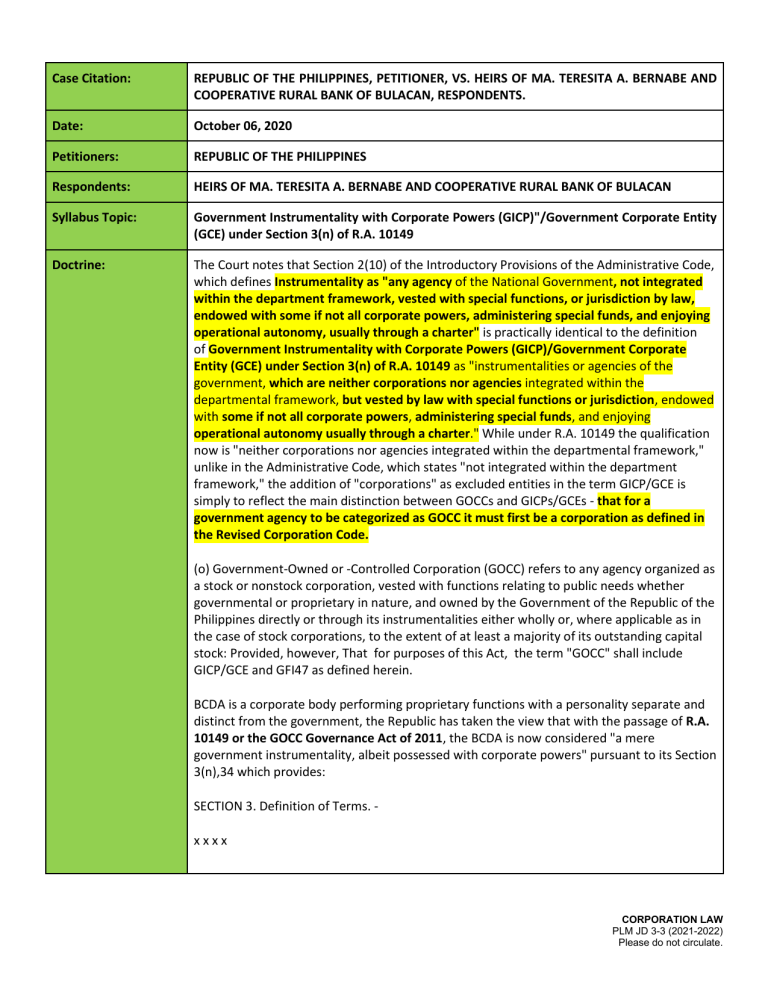
Case Citation: REPUBLIC OF THE PHILIPPINES, PETITIONER, VS. HEIRS OF MA. TERESITA A. BERNABE AND COOPERATIVE RURAL BANK OF BULACAN, RESPONDENTS. Date: October 06, 2020 Petitioners: REPUBLIC OF THE PHILIPPINES Respondents: HEIRS OF MA. TERESITA A. BERNABE AND COOPERATIVE RURAL BANK OF BULACAN Syllabus Topic: Government Instrumentality with Corporate Powers (GICP)"/Government Corporate Entity (GCE) under Section 3(n) of R.A. 10149 Doctrine: The Court notes that Section 2(10) of the Introductory Provisions of the Administrative Code, which defines Instrumentality as "any agency of the National Government, not integrated within the department framework, vested with special functions, or jurisdiction by law, endowed with some if not all corporate powers, administering special funds, and enjoying operational autonomy, usually through a charter" is practically identical to the definition of Government Instrumentality with Corporate Powers (GICP)/Government Corporate Entity (GCE) under Section 3(n) of R.A. 10149 as "instrumentalities or agencies of the government, which are neither corporations nor agencies integrated within the departmental framework, but vested by law with special functions or jurisdiction, endowed with some if not all corporate powers, administering special funds, and enjoying operational autonomy usually through a charter." While under R.A. 10149 the qualification now is "neither corporations nor agencies integrated within the departmental framework," unlike in the Administrative Code, which states "not integrated within the department framework," the addition of "corporations" as excluded entities in the term GICP/GCE is simply to reflect the main distinction between GOCCs and GICPs/GCEs - that for a government agency to be categorized as GOCC it must first be a corporation as defined in the Revised Corporation Code. (o) Government-Owned or -Controlled Corporation (GOCC) refers to any agency organized as a stock or nonstock corporation, vested with functions relating to public needs whether governmental or proprietary in nature, and owned by the Government of the Republic of the Philippines directly or through its instrumentalities either wholly or, where applicable as in the case of stock corporations, to the extent of at least a majority of its outstanding capital stock: Provided, however, That for purposes of this Act, the term "GOCC" shall include GICP/GCE and GFI47 as defined herein. BCDA is a corporate body performing proprietary functions with a personality separate and distinct from the government, the Republic has taken the view that with the passage of R.A. 10149 or the GOCC Governance Act of 2011, the BCDA is now considered "a mere government instrumentality, albeit possessed with corporate powers" pursuant to its Section 3(n),34 which provides: SECTION 3. Definition of Terms. xxxx CORPORATION LAW PLM JD 3-3 (2021-2022) Please do not circulate. (n) Government Instrumentalities with Corporate Powers (GICP)/Government Corporate Entities (GCE) refer to instrumentalities or agencies of the government, which are neither corporations nor agencies integrated within the departmental framework, but vested by law with special functions or jurisdiction, endowed with some if not all corporate powers, administering special funds, and enjoying operational autonomy usually through a charter including, but not limited to, the following: the Manila International Airport Authority (MIAA), the Philippine Ports Authority (PPA), the Philippine Deposit Insurance Corporation (PDIC), the Metropolitan Waterworks and Sewerage System (MWSS), the Laguna Lake Development Authority (LLDA), the Philippine Fisheries Development Authority (PFDA), the Bases Conversion and Development Authority (BCDA). the Cebu Port Authority (CPA), the Cagayan de Oro Port Authority, the San Fernando Port Authority, the Local Water Utilities Administration, (LWUA) and the Asian Productivity Organization (APO). (Underscoring supplied) To reiterate, while Section 3 of R.A. 7227 recognizes the BCDA as a body corporate with the attribute of perpetual succession and vested with the powers of a corporation and Section 5 of R.A. 7227 vests the BCDA with the power, among others, to succeed in its corporate name, to sue and be sued in such corporate name and to adopt, alter and use a corporate seal which can be judicially noticed, these provisions do not make the BCDA a corporation, either a stock or nonstock corporation as defined under the Corporation Code as well as the Revised Corporation Code - they merely endow the BCDA with all or full corporate powers so that it can enjoy operational autonomy. And, since its capitalization provision, Section 6 of R.A. 7227, cannot qualify the BCDA as a stock or nonstock corporation, then it is an Instrumentality under Section 2(10) of the Introductory Provisions of the Administrative Code as well as Government Instrumentality with Corporate Powers (GICP)"/Government Corporate Entity (GCE) under Section 3(n) of R.A. 10149. Quick summary: On August 23, 2004, the OSG filed a complaint for cancellation of title and reversion against the Bernabes. It averred that since the Original Certificate issued to Garcia is null and void, the TCT registered under the name of Bernabe is without valid and binding effect. On January 23, 2006, while this case was pending, [respondents] Heirs of Bernabe mortgaged the subject property to [CRBB]. After being informed of the mortgage, the Republic, through the OSG, filed on December 5, 2011, an Amended Complaint impleading CRBB as defendant. Atty. Arnel Paciano D. Casanova [(Atty. Casanova)], the President and Chief Executive Officer of the Bases Conversion and Development Authority (BCDA), signed the Amended Complaint's Verification and Certification Against Forum Shopping. CRBB filed a Motion to Dismiss arguing that the Republic never renounced its ownership over the Clark Air Force Base, hence, the proper party to initiate a case for reversion is the Director of Lands. OSG filed its Opposition contending that: the Republic is the real party in interest, being the owner of all lands of the public domain under the concept of jura regalia. Atty. Casanova need not be authorized by the BCDA Board because he signed the x x x Verification and Certification Against Forum Shopping, not for BCDA, but for the Republic. Antecedent Facts: On August 23, 2004, a Complaint for Cancellation of Title and Reversion was filed by [the Republic] through the [OSG] against [respondent] Ma. Teresita E. Bernabe [(Bernabe)]. The Complaint alleges that on July 31, 1908, [the] then Governor General of the Philippines, James F. Smith, issued an unnumbered proclamation reserving certain parcels of land in the province of Pampanga for military purposes. CORPORATION LAW PLM JD 3-3 (2021-2022) Please do not circulate. The sublots covered by Survey Plan Csd-11198 are portions of the Fort Stotsenburg Military Reservation, which is currently known as Clark Air Force Base. Said military reservation was never released as alienable and disposable land of the public domain, hence, they are neither susceptible to disposition under the provisions of Commonwealth Act No. 141, the Public Land Act, nor registrable under Act No. 496, the Land Registration Act. As evidenced by a subdivision survey covering Lot No. 965, Psd-5278, formerly Lot No. 42 of Csd-11198, one Francisco Garcia [(Garcia)] caused the registration of the same under the Torrens System of Registration; by virtue of the said registration, Garcia was then issued an Original Certificate of Title No. 83 on August 16, 1968. The said portion [(subject property)] was then further sold to Bernabe for which Transfer Certificate of Title No. 107736 was issued. Garcia's acquisition of the subject property was tainted with fraud and misrepresentation, hence, the Decision of the Court of First Instance in Cadastral Case No. 1, LRC Record No. 124 which adjudicated the subject property in favor of Garcia and decreed the consequent issuance of Original Certificate [of Title] No. 83 must be declared as null and void; since the Original Certificate of Title No. 83 issued to Garcia is null and void, the Transfer Certificate of Title No. 107736 registered under the name of Bernabe is without valid and binding effect. On January 23, 2006, while this case was pending, [respondents] Heirs of Bernabe mortgaged the subject property covered by Transfer Certificate of Title No. 107736 to [CRBB]. After being informed of the mortgage, the Republic, through the OSG, filed on December 5, 2011, an Amended Complaint impleading CRBB as defendant. Atty. Arnel Paciano D. Casanova [(Atty. Casanova)], the President and Chief Executive Officer of the Bases Conversion and Development Authority (BCDA), signed the Amended Complaint's Verification and Certification Against Forum Shopping. On March 5, 2012, [the OSG filed a Second Amended Complaint indicating the place of business of x x x CRBB as Cagayan Valley Road, Banga lst Plaridel, Bulacan. Lower court/s Ruling: On May 13, 2014, the [RTC] rendered [a] Resolution, granting CRBB's Motion to Dismiss. Appellate court Ruling: CA denied the Republic's appeal. The CA agreed with the RTC that the Republic is not the real party in interest because, from the allegations of the Republic's Second Amended Complaint, the subject property being located inside the Fort Stotsenburg Military Reservation, which is presently known as Clark Air Base, is under the direct control and ownership of the BCDA. Thus, according to the CA, the BCDA, by virtue of its ownership over the subject property, is the party which stands to be benefited or injured by the verdict in the instant case, and, being the real party in interest, the instant case for reversion and cancellation of title must be lodged in its name as the plaintiff. Petitioner’s Contention: For its part, the OSG filed its Opposition contending that: the Republic is the real party in interest, being the owner of all lands of the public domain under the concept of jura regalia. Atty. Casanova need not be authorized by the BCDA Board because he signed the x x x Verification and Certification Against Forum Shopping, not for BCDA, but for the Republic. Atty. Casanova had sufficient knowledge and belief to swear to the truth of the allegations in the Second Amended Complaint. The defense of prescription is unavailing because said defense does not run against the State and its subdivisions; and, to grant x x x CRBB's Motion to Dismiss CORPORATION LAW PLM JD 3-3 (2021-2022) Please do not circulate. on account of some procedural infirmity would be tantamount to a denial of due process against the State. Respondent’s Contention: CRBB filed a Motion to Dismiss arguing that the Republic never renounced its ownership over the Clark Air Force Base, hence, the proper party to initiate a case for reversion is the Director of Lands. The instant complaint for cancellation of title and reversion, not being initiated by the Director of Lands, should be dismissed. Assuming that BCDA is the proper party, the complaint is still procedurally defective since it is not appended with a valid verification and certification against forum shopping. There is no showing that Atty. Casanova, in signing the x x x Verification and Certification Against Forum Shopping, was indeed authorized by the BCDA Board to sign said documents; and, if indeed the BCDA is the real party in interest, it cannot raise the defense of imprescriptibility, it being engaged in proprietary function. Finally, it contended that CRBB and the Heirs of Bernabe entered into their (loan and mortgage transactions in good faith relying on what appeared on the title of the subject property, therefore, they must be protected. Issue: whether the Republic is the real party in interest to institute and prosecute the instant case for reversion and cancellation of title SC Ruling: It will be recalled that Republic Act No. (R.A.) 7227 or the Bases Conversion and Development Act of 1992 created the Bases Conversion and Development Authority (BCDA), "a body corporate x x x which shall have the attribute of perpetual succession and shall be vested with the powers of a corporation." One of the BCDA's purposes is: "To own, hold and/or administer the military reservations of John Hay Air Station, Wallace Air Station, O'Donnell Transmitter Station, San Miguel Naval Communications Station, Mt. Sta. Rita Station (Hermosa, Bataan) and those portions of Metro Manila military camps which may be transferred to it by the President."Being a corporate entity, the BCDA is vested with the power, among others: "To succeed in its corporate name, to sue and be sued in such corporate name and to adopt, alter and use a corporate seal which shall be judicially noticed." Section 9 of R.A. 7227 provides: "The powers and functions of the Conversion Authority shall be exercised by a Board of Directors to be composed of nine (9) members x x x." R.A. 7227 expressly provides that the BCDA is to own, hold and/or administer the military reservations and other properties transferred to it. To reiterate, while Section 3 of R.A. 7227 recognizes the BCDA as a body corporate with the attribute of perpetual succession and vested with the powers of a corporation and Section 5 of R.A. 7227 vests the BCDA with the power, among others, to succeed in its corporate name, to sue and be sued in such corporate name and to adopt, alter and use a corporate seal which can be judicially noticed, these provisions do not make the BCDA a corporation, either a stock or nonstock corporation as defined under the Corporation Code as well as the Revised Corporation Code - they merely endow the BCDA with all or full corporate powers so that it can enjoy operational autonomy. And, since its capitalization provision, Section 6 of R.A. 7227, cannot qualify the BCDA as a stock or nonstock corporation, then it is an Instrumentality under Section 2(10) of the Introductory Provisions of the Administrative Code as well as Government Instrumentality with Corporate Powers (GICP)"/Government Corporate Entity (GCE) under Section 3(n) of R.A. 10149. Given that, under Proc. 163, the CAB Lands were expressly transferred to the BCDA and the BCDA is empowered to determine their utilization and disposition, and that under R.A. 7227, CORPORATION LAW PLM JD 3-3 (2021-2022) Please do not circulate. BCDA is to own, hold and/or administer the properties transferred to it, it would seem that the Republic might have divested its right of dominion over properties that had been transferred to the BCDA and it would seem that BCDA would be the real party in interest in this case rather than the Republic. This was the very ruling of the Court in the 2001 case of Shipside Incorporated. In that case, the OSG, representing the Republic, filed a complaint for revival of judgment and cancellation of titles which had been issued over parcels of land located inside Camp Wallace. Shipside Incorporated filed a Motion to Dismiss based on the ground, among others, that the Republic was not the real party in interest because the real property covered by the Torrens titles sought to be cancelled, allegedly part of Camp Wallace (Wallace Air Station), were under the ownership and administration of the BCDA under R.A. 7227. The Court upheld Shipside Incorporated's argument and declared: With the transfer of; Camp Wallace to the BCDA, the government no longer has a right or interest to protect. Consequently, the Republic is not a real party in interest and it may not institute the instant action. Nor may it raise the defense of imprescriptibility, the same being applicable only in cases where the government is a party in interest. Under Section 2 of Rule 3 of the 1997 Rules of Civil Procedure, "every action must be prosecuted or defended in the name of the real party in interest." To qualify a person to be a real party in interest in whose name an action must be prosecuted, he must appear to be the present real owner of the right sought to be enforced (Pioneer Insurance v. CA, 175 SCRA 668 [1989]). A real party in interest is the party who stands to be benefited or injured by the judgment in the suit, or the party entitled to the avails of the suit. And by real interest is meant a present substantial interest, as distinguished from a mere expectancy, or a future, contingent, subordinate or consequential interest (Ibonilla v. Province of Cebu, 210 SCRA 526 [1992] ). Being the owner of the areas covered by Camp Wallace, it is the Bases Conversion and Development Authority, not the Government, which stands to be benefited if the land covered by TCT No. T-5710 issued in the name of petitioner is cancelled. Having the capacity to sue or be sued [under Section 5 of R.A. 7227, it should thus be the BCDA which may file an action to cancel petitioner's title, not the Republic, the former being the real party in interest. Moreover, to recognize the Government as a proper party to sue in this case would set a bad; precedent as it would allow the Republic to prosecute, on behalf of government-owned or controlled corporations, causes of action which have already prescribed, on the pretext that the Government is the real party in interest against whom prescription does not run, said corporations having been created merely as agents for the realization of government programs. The Court clarifies that the BCDA has limited ownership right and disposing power. This is recognized as one of the powers of the BCDA under Section 5(h) of R.A. 7227: "To acquire, own, hold, administer, and lease real and personal properties, including agricultural lands, property rights and interests and encumber, lease, mortgage, sell, alienate or otherwise dispose of the same at fair market value it may deem appropriate." Being one for reversion, the action should indeed be instituted by the OSG on behalf of the Republic pursuant to Section 101 of Commonwealth Act No. 141, as amended, or the Public Land Act, which provides: "All actions for the reversion to the Government of lands of the CORPORATION LAW PLM JD 3-3 (2021-2022) Please do not circulate. public domain or improvements thereon shall be instituted by the Solicitor-General or the officer acting in his stead, in the proper courts, in the name of the Commonwealth of the Philippines." The Court interpreted this provision in Republic v. Mangotara in this wise: Clear from the aforequoted provision that the authority to institute an action for reversion, on behalf of the Republic, is primarily conferred upon the OSG. While the OSG, for most of the time, will file an action for reversion upon the request or recommendation of the Director of Lands, there is no basis for saying that the former is absolutely bound or dependent on the latter. It must be recalled that the authority of the Director of Lands is limited to those disposable lands of public domain which have been proclaimed to be subject to disposition under the Public Land Act or Commonwealth Act No. 141. In the present case, the CAB Lands have been transferred to the BCDA as the trustee thereof and, thus, the Director of Lands can no longer be deemed the administrator of the CAB Lands on the assumption that they have already been proclaimed as disposable lands of public domain. Others/Notes: Many government instrumentalities are vested with corporate powers but they do not become stock or non-stock corporations, which is a necessary condition before an agency or instrumentality is deemed a [GOCC]. Examples are the Mactan International Airport Authority, the Philippine Ports Authority, the University of the Philippines and Bangko Sentral ng Pilipinas. All these government instrumentalities exercise corporate powers but they are not organized as stock or non-stock corporations as required by Section 2(13) of the Introductory Provisions of the Administrative Code. These government instrumentalities are sometimes loosely called government corporate entities. However, they are not [GOCCs] in the strict sense as understood under the Administrative Code, which is the governing law defining the legal relationship and status of government entities. The definition of a GOCC under R.A. 10149 has basically retained the definition of a GOCC under Section 2(13) of the Introductory Provisions of the Administrative Code but reduced the ownership threshold from "at least fifty-one (51) per cent of its capital stock" to "at least a majority of its outstanding capital stock." The Court further notes that the proviso "for purposes of this Act, the term "GOCC" shall include GICP/GCE and GFI as defined herein" is for ease of reference only and is not intended to subsume GICPs/GCEs and GFIs into the category of GOCCs such that their inherent differences have been abrogated. In other words, these three categories or classifications of government agencies have not been merged into one. The definitions and characteristics of the three different groups have been retained in R.A. 10149. The Court's observation is based on the following: (1) The different types of agencies of the government have been respectively defined under Section 3, Definition of Terms, of R.A. 10149. If the intention was to have all agencies and instrumentalities of government be called GOCCs, then the definitions of GICPs/GCEs and GFIs should have been included in the GOCC definition and not made separately. (2) Aside from Section 3, GICPs/GCEs and GFIs also appear in Section 4, on Coverage: "This Act shall be applicable to all GOCCs, GICPs/GCEs, and government financial CORPORATION LAW PLM JD 3-3 (2021-2022) Please do not circulate. institutions, including their subsidiaries, but excluding the Bangko Sentral ng Pilipinas, state universities and colleges, cooperatives, local water districts, economic zone authorities and research institutions: Provided, That in economic zone authorities and research institutions, the President shall appoint one-third (1/3) of the board members from the list submitted by the GCG." Clearly, there is no intention to merge GICPs/GCEs and GFIs into GOCCs. (3) In other Sections of R.A. 10149, only the term GOCC is mentioned. Its long title is "An Act to Promote Financial Viability and Fiscal Discipline in Government-Owned or -Controlled Corporations and to Strengthen the Role of the State in its Governance and Management to Make Them More Responsive to the Needs of Public Interest and for Other Purposes." Its short title pursuant to Section 1 of R.A. 10149 is the GOCC Governance Act of 2011. Indeed, it would be inconvenient to name it "GICP/GCE, GOCC, GFI Governance Act of 2011" and add "Government Instrumentalities with Corporate Powers/Government Corporate Entities and Government Financial Institutions" in its expanded title. In Section 2 on Declaration of Policy, it mentions that "[t]he State recognizes the potential of governmentowned or -controlled corporations (GOCCs) as significant tools for economic development," without mentioning GICPs/GCEs and GFIs, but the latter are also covered, not to mention that they too are significant tools of development. Even the name of the Commission created by R.A. 10149 only GOCC is mentioned, the Governance Commission for Government-Owned or -Controlled Corporations (CGC). If only GOCCs are included, then it would not be "a central advisory, monitoring, and oversight body with authority to formulate, implement and coordinate policies x x x, which [is] attached to the Office of the President," as provided in Section 5. CORPORATION LAW PLM JD 3-3 (2021-2022) Please do not circulate. CORPORATION LAW PLM JD 3-3 (2021-2022) Please do not circulate.
